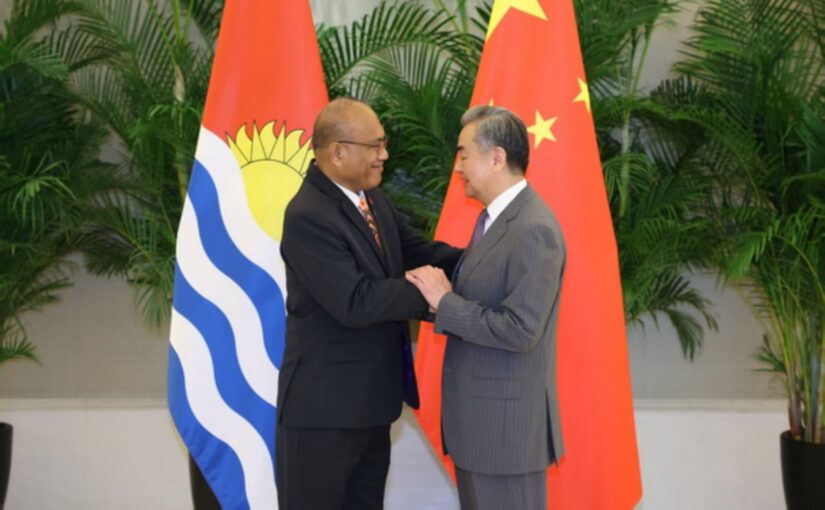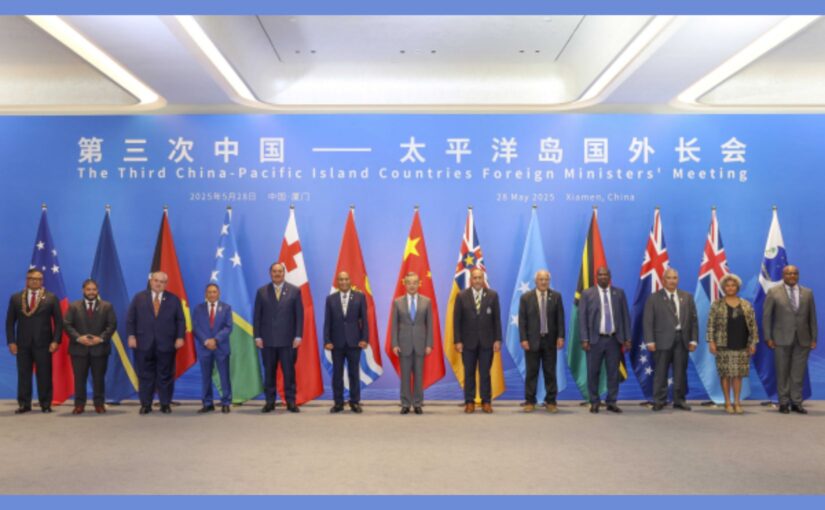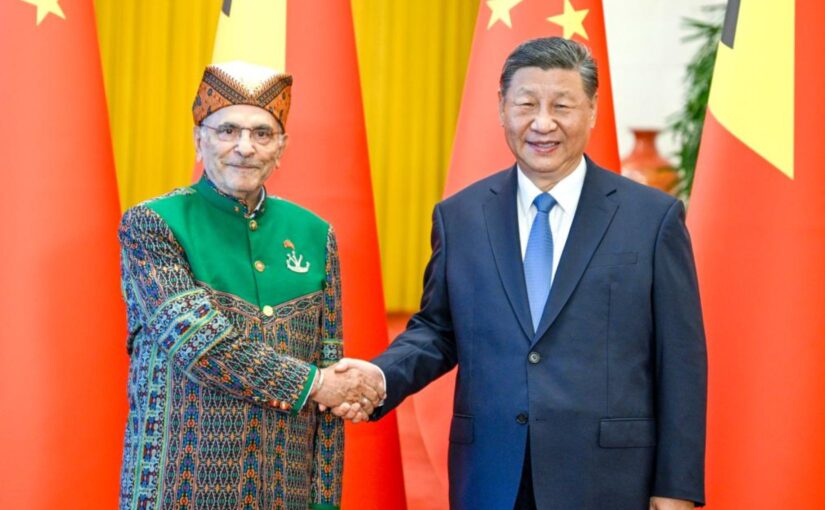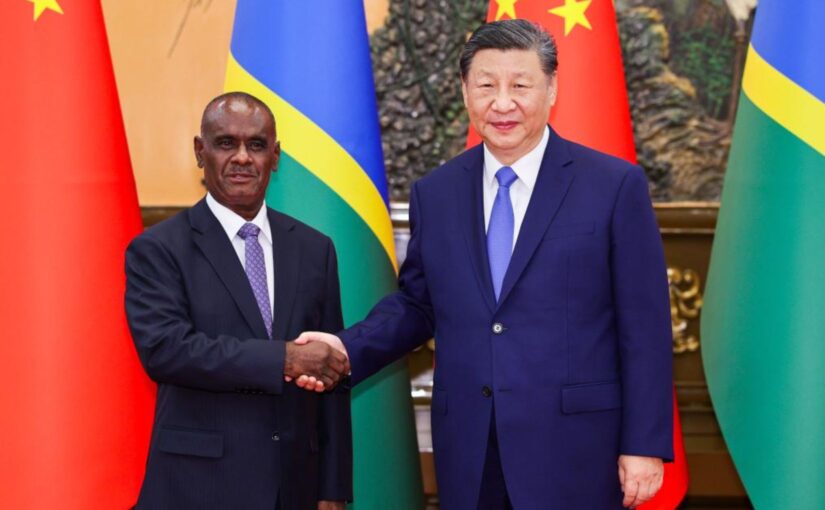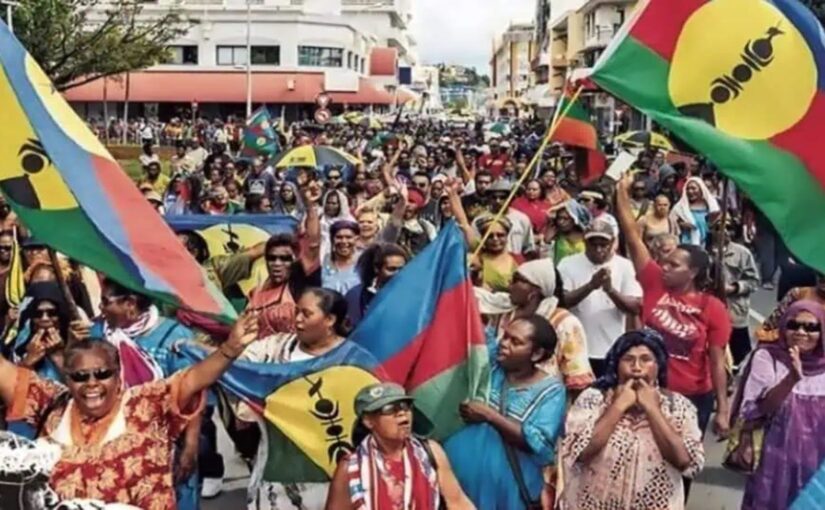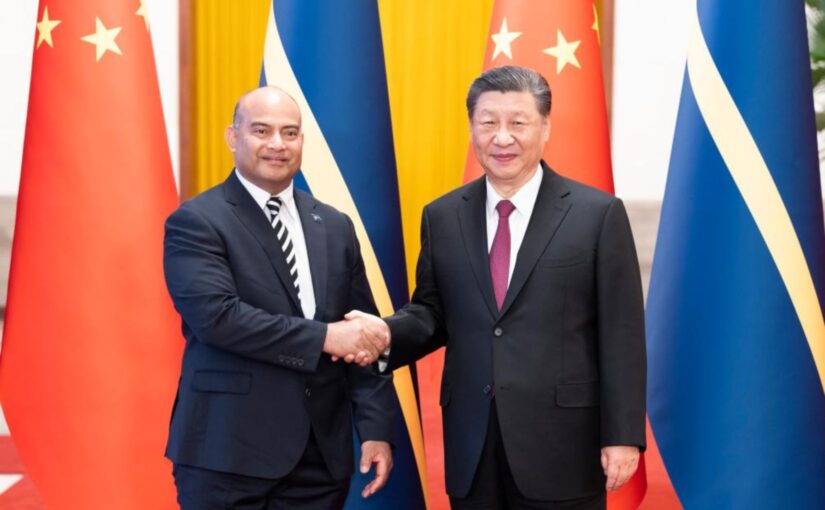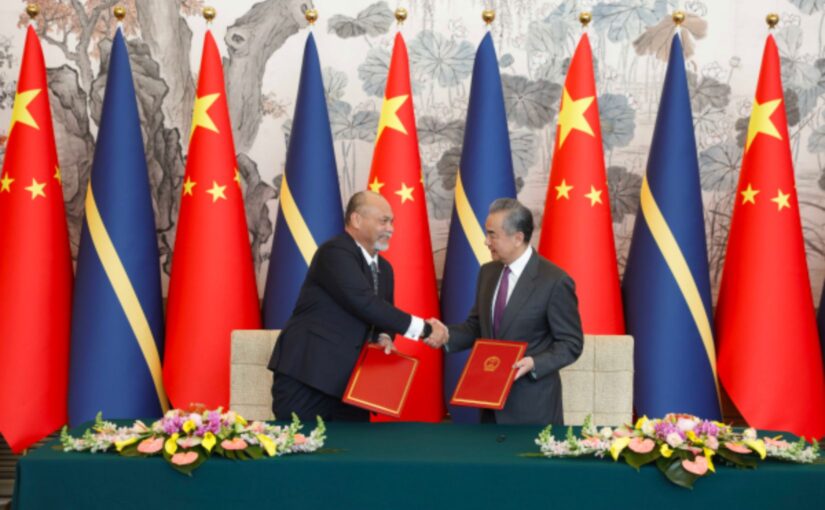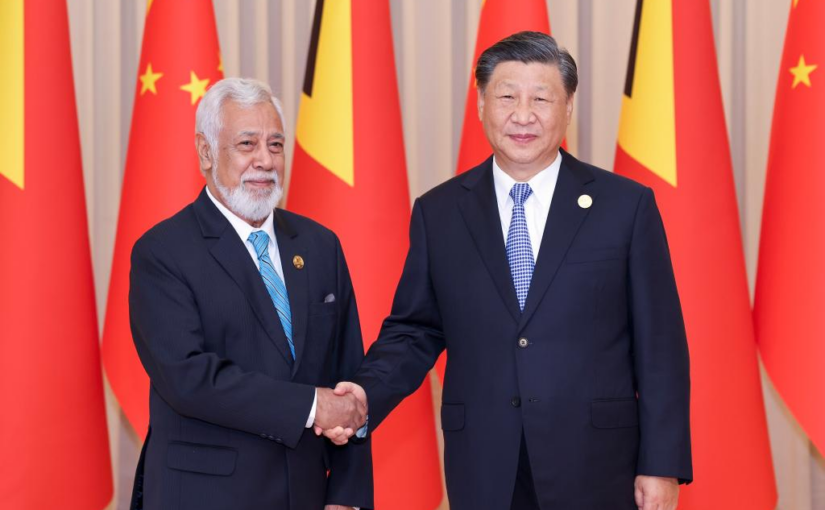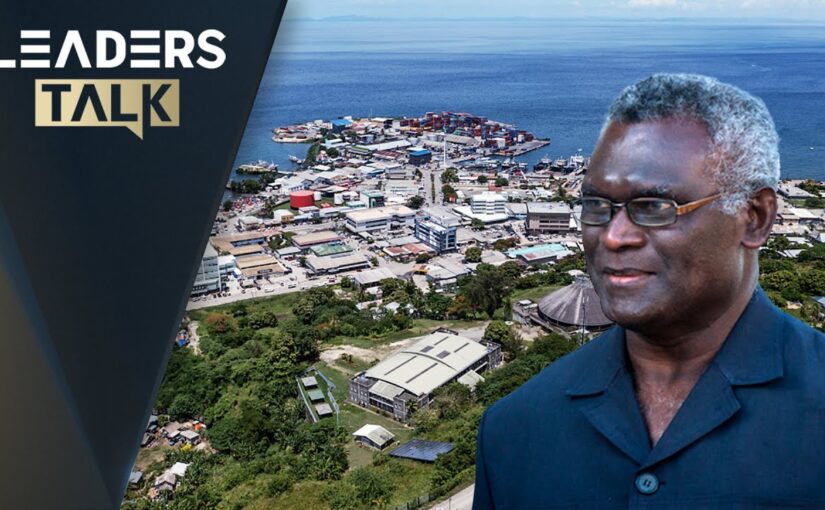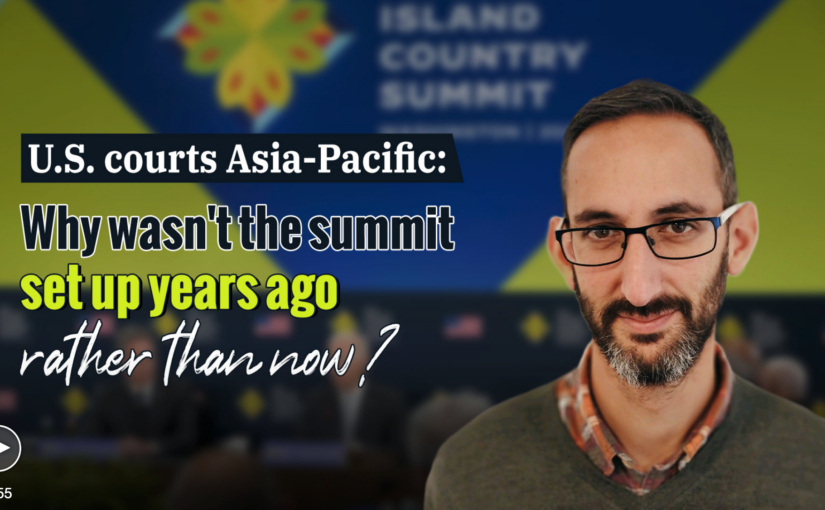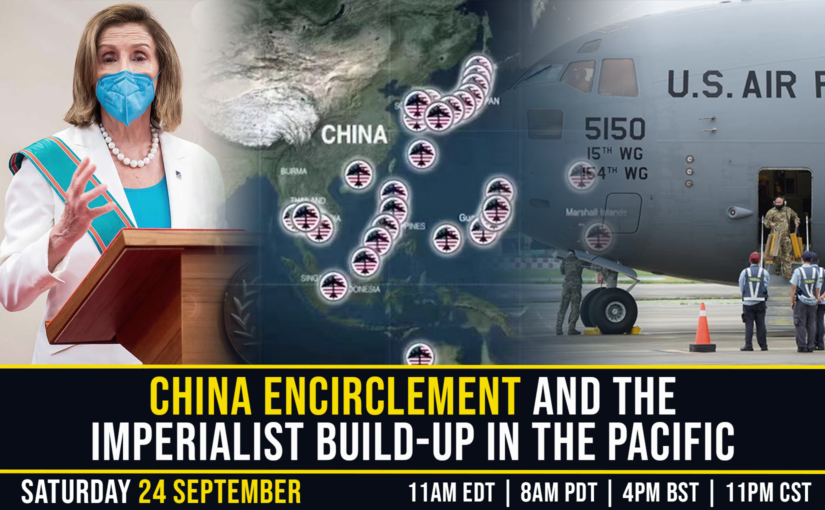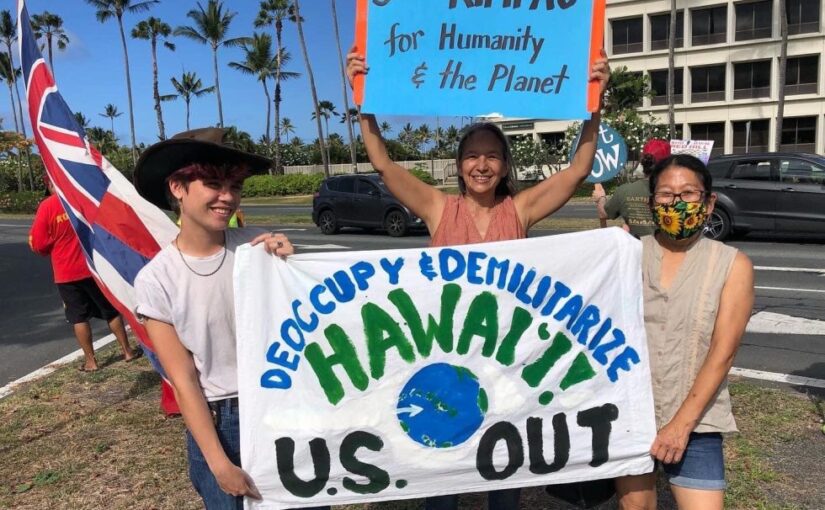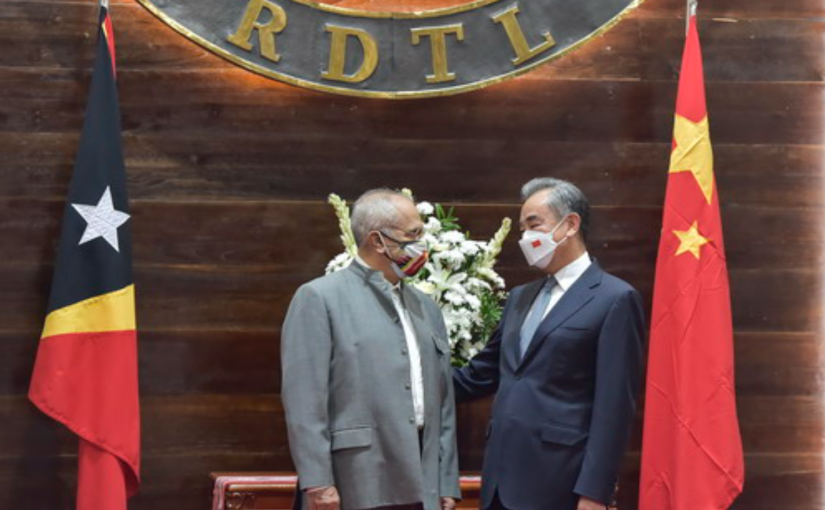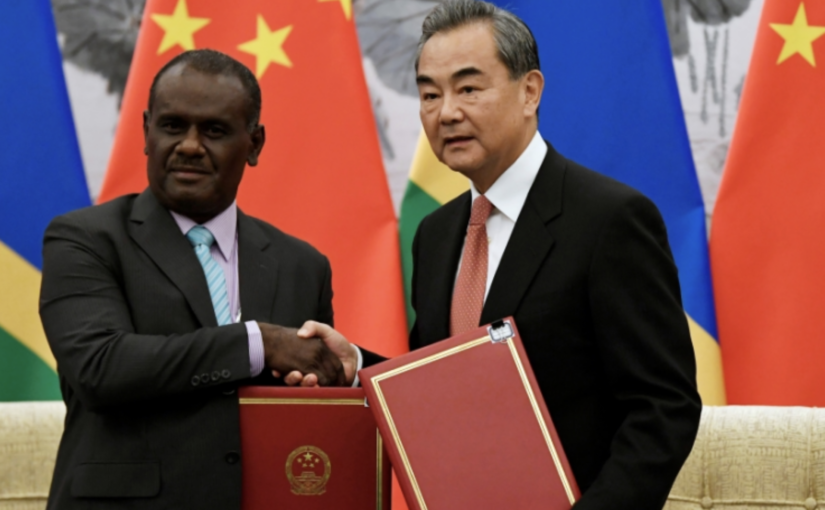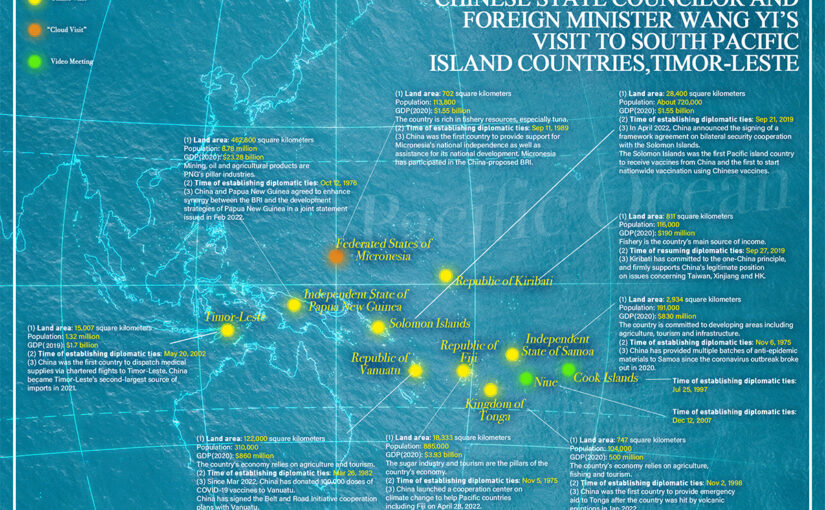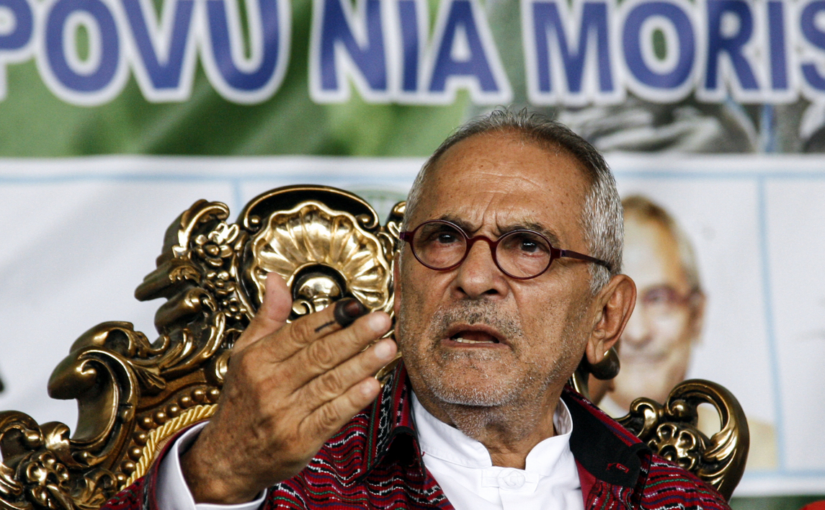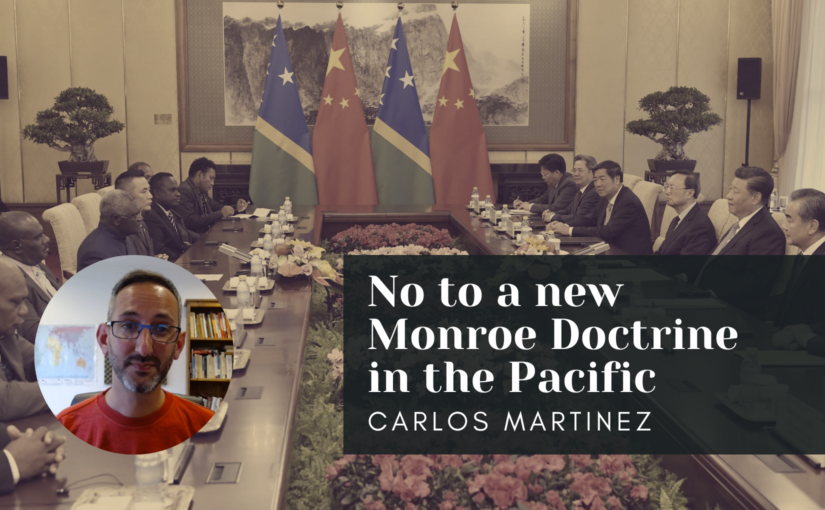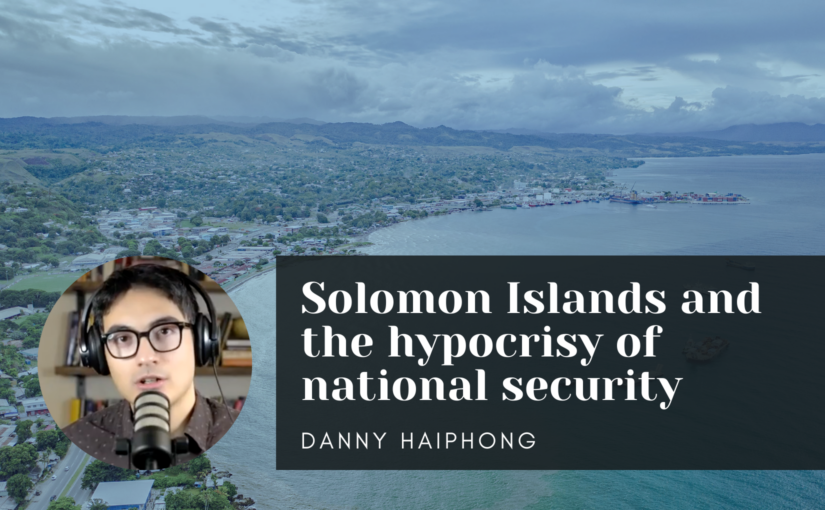China resumed diplomatic relations with the South Pacific island nation of Nauru on January 24. This came nine days after Nauru independently announced that it was severing its so-called “diplomatic relations” with the authorities on the Chinese island of Taiwan.
Nauru thus becomes the 183rd country to have diplomatic relations with China. (Nauru previously had diplomatic relations with China, 2002-2005.)
The formal resumption of ties came with the signing of a joint communiqué in Beijing by Foreign Minister Wang Yi and his visiting Nauruan counterpart, Minister for Foreign Affairs and Trade Lionel Aingimea.
According to the joint communiqué:
“The two governments agree to develop friendly relations between the two countries on the basis of the principles of mutual respect for sovereignty and territorial integrity, mutual non-aggression, non-interference in each other’s internal affairs, equality, mutual benefit and peaceful coexistence.
“The Government of the Republic of Nauru recognises that there is but one China in the world, the Government of the People’s Republic of China is the sole legal Government representing the whole of China, and Taiwan is an inalienable part of China’s territory. The Government of the Republic of Nauru shall sever ‘diplomatic relations’ with Taiwan as of this day and undertakes that it shall no longer develop any official relations or official exchanges with Taiwan. The Government of the People’s Republic of China appreciates this position of the Government of the Republic of Nauru.”
At the talks that preceded the signing, Wang Yi said that, bearing in mind the long-term development of Nauru and the fundamental interests of its people, the government of Nauru has made the political resolve to recognise the one-China principle, sever ‘diplomatic ties’ with the Taiwan region and resume diplomatic relations with the People’s Republic of China. In so doing, Nauru has chosen to stand on the right side of history. The Parliament of Nauru has unanimously adopted a motion in support of this decision, which fully represents the will of the Nauruan people. China welcomes and appreciates the decision.
China will work with Nauru to take the resumption of diplomatic ties as an opportunity to increase exchanges at all levels, share governance experience, and synergise development strategies, so that the two countries will become good brothers, good friends and good partners that trust each other politically, benefit each other economically and support each other in international affairs. Together, the two sides will contribute to a closer community with a shared future between China and Pacific Island countries.
Foreign Minister Aingimea said that his country’s decision was unanimously adopted by the Parliament of Nauru, with a standing ovation by all of its members. It fully shows that this is a right decision which is welcomed by the people and serves the fundamental interests of Nauru.
He added that the way China says what it means and does what it says has won the hearts of the people of Nauru. With their diplomatic ties resumed, droplets of friendship between the two countries will create an ocean. Nauru admires China’s remarkable development achievements and great contribution to global growth, and firmly believes in the vast and promising future of the bilateral relationship. Nauru highly commends and will take an active part in President Xi Jinping’s vision of building a community with a shared future for humanity and in the important global initiatives President Xi has put forward.
Following the signing of the communiqué, the two ministers met the press.
Foreign Minister Wang pointed out that although China and Nauru are far apart geographically, the two peoples enjoy a long-standing friendship. As developing countries, China and Nauru face the common tasks of growing the economy, improving people’s lives and realising modernisation. As members of the Global South, the two countries share the common aspirations to safeguard sovereignty and independence, uphold the common interests of developing countries, and work for an equal and orderly multipolar world and a universally beneficial and inclusive economic globalisation.
He added that China always believes that countries, regardless of size, strength, and wealth, are equals and important members of the international community. China will, following the Five Principles of Peaceful Coexistence, treat Nauru as an equal and support Nauru in pursuing a development path suited to its national conditions and chosen independently by its people. China looks forward to working with Nauru to deepen political mutual trust, advance mutually beneficial cooperation, enhance friendship between the people, and take bilateral ties to new heights. China will share with Nauru the development opportunities brought by Chinese modernisation in a joint pursuit of a community with a shared future for humanity.
Noting that just a handful of countries still maintain “diplomatic relations” with the Taiwan region for various reasons, Wang said that this not only contravenes the interests of their own countries and people and goes against Resolution 2758 of the UN General Assembly (which restored China’s seat in the United Nations), but also constitutes an infringement of China’s sovereignty. It must be redressed sooner or later. China urges those countries to be clear-eyed about the trend of the times, seize the historical opportunities, fulfil their obligations under international law, and join the international community in coming to the right side of history. It is never too late to forge a friendship. China is ready to turn a new page in its relations with those countries on the basis of the one-China principle.
The following day, Minister Aingimea met with Chinese Vice President Han Zheng. Hailing the political decision made independently by the Nauru government to resume diplomatic relations with China, Han said history will prove that this is the right decision and once again shows that the one-China principle is deeply rooted in the hearts of the people.
China supports Nauru in exploring the path of modernisation that suits its national conditions, and is willing to do its best to help Nauru achieve development based on mutual respect, equality, win-win cooperation, openness and inclusiveness, he added.
Aingimea said that the establishment of diplomatic ties with China has put Nauru on the right side of history, and becoming a partner with China will make Nauru’s development prospects brighter and bring more benefits to its people. Nauru looks forward to strengthening exchanges and cooperation with China and will actively participate in the Belt and Road cooperation and the three global initiatives put forward by President Xi.
Meanwhile, speaking to the Xinhua News Agency in the Nauruan capital Yaren shortly before the announcement, Joanna Olsson, director of the Government Information Office of Nauru, said that the Belt and Road Initiative brings development opportunities to Pacific Island nations, and Nauru looks forward to more practical cooperation with China after the two nations resume diplomatic relations.
She said that she is optimistic about future practical cooperation between the two nations, particularly on climate change, water supply and agriculture, among others.
Being a Pacific Island nation, Nauru is deeply affected by climate change, facing urgent challenges such as rising sea levels and land erosion. Some coastal areas are being submerged, necessitating the relocation of residential areas and some public service facilities to higher ground.
Moreover, the scarcity of fresh water for daily life is a persistent concern for local residents. Global climate change has worsened water crises, posing even more severe challenges to the islanders, she said.
Nauru’s move leaves just 12 countries having “diplomatic relations” with Taiwan. Of these, the South Pacific Island state of Tuvalu will hold an election on January 26. At time of writing, there is much speculation in the international media that it may then follow Nauru in establishing diplomatic relations with China.
Nauru won its national independence in 1968 having been under the colonial rule of Britain, Australia, and New Zealand in the form of a “UN Trusteeship”. Tuvalu achieved national independence from British colonialism in 1978.
The following articles were originally published on the websites of the Chinese Foreign Ministry and the Xinhua News Agency.


